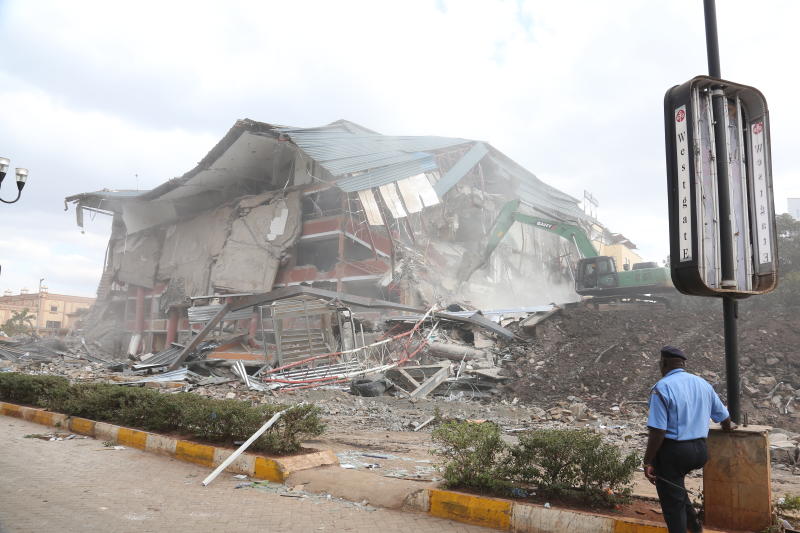
NAIROBI, KENYA: It is an exercise that has gripped the nation. The green excavator is a celebrity in its own right. Sany, as it is now called, has more photos on Facebook than a Kenyan socialite. Today, the first thing social media users want to know in the morning is where it is headed. Welcome to Kenya’s latest soap opera, the ‘Bomoa Bomoa Edition’.
It is evident that the ongoing demolition exercise is not stopping soon. Investors in real estate are already counting loss of assets worth billions of shillings, with more houses set for demolition in the next two months.